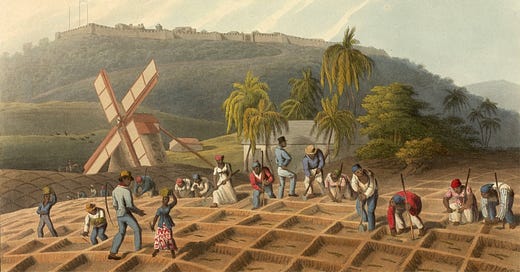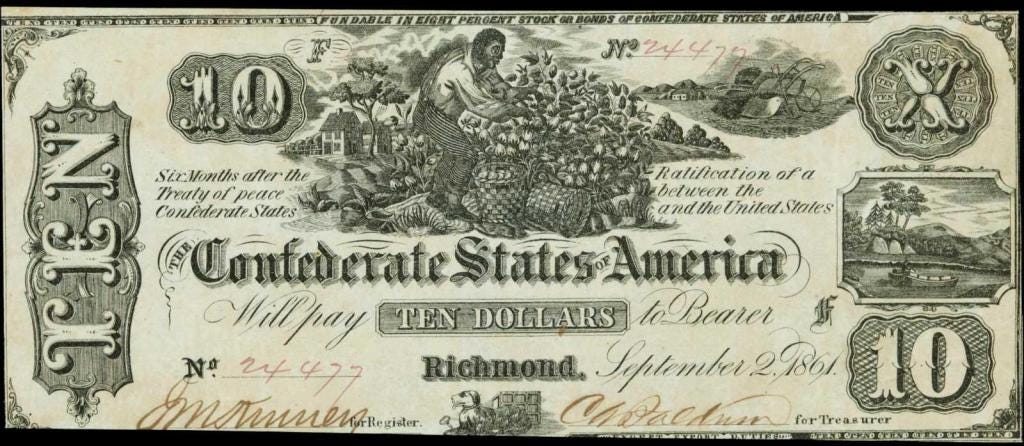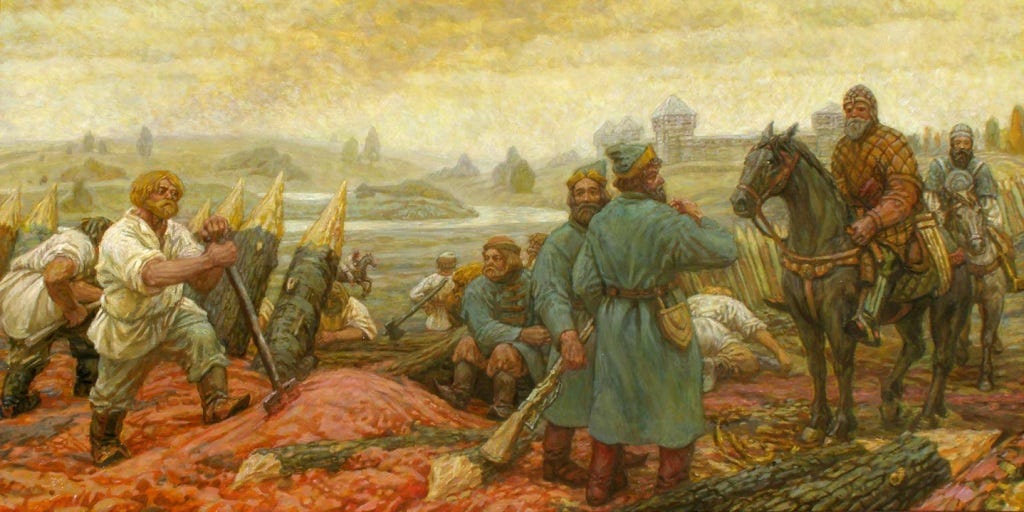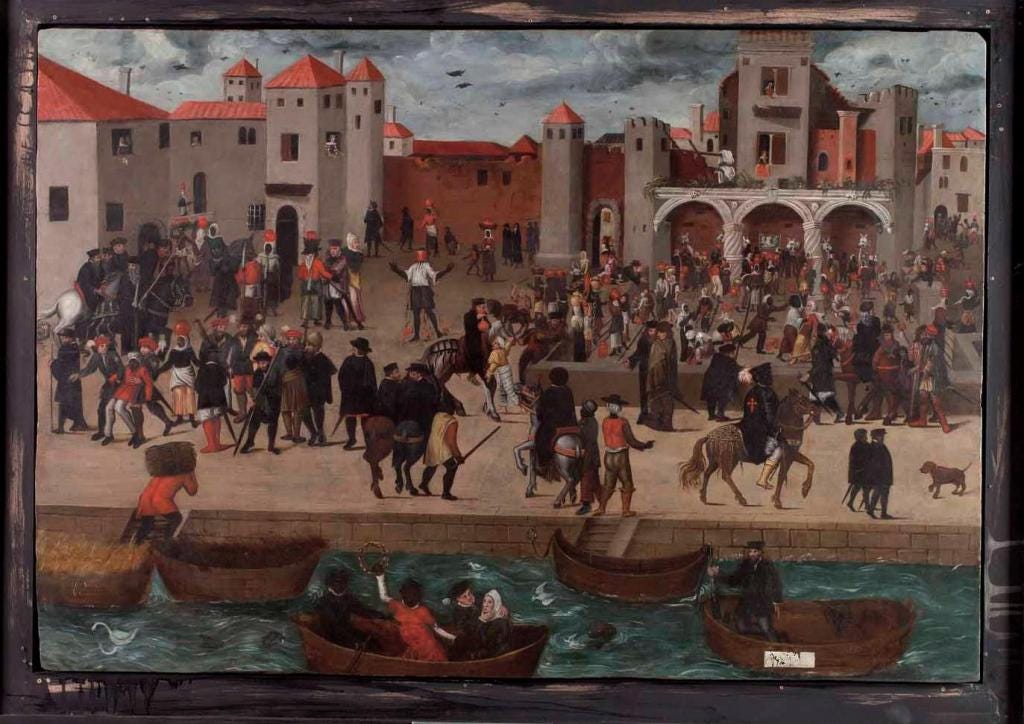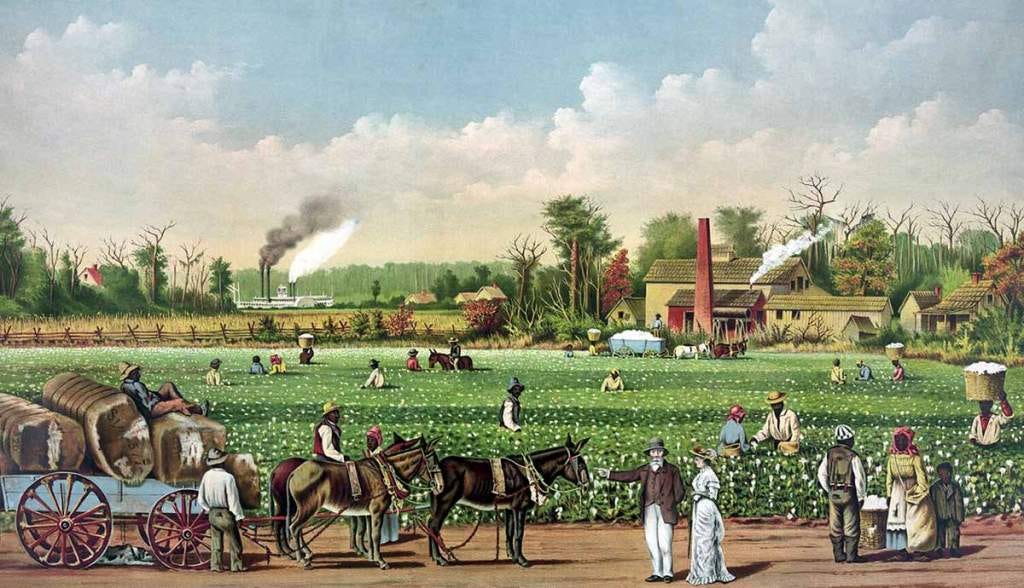A Philosophical Defence of Slavery
Slavery as an institution is timeless. From the times of the Old Testament to the New, and even in our modern era slavery can still be said to exist in formal and informal arrangements. Historically, those who found themselves enslaved were those who were on the losing side of a war, were criminals, or failed to remedy a debt and therefore were called upon to fulfill their obligations through compulsory labour. In classical slavery, and later in feudalism and serfdom, the owned worker was not of lesser innate value than his owner, but rather their positions afforded lesser or greater recognition, rights, and responsibilities. As men of similar or the same culture and religion, they shared a mutual understanding and familiarity which in-turn discouraged the owner from abusing his slaves, peasants, or serfs. Of course, there are and have always been those of a psychopathic or misanthropic disposition who either fail to care for others or even experience pleasure in their abuse. Should fate grant such individuals the opportunities to reign over other men abuses would occur, if they are unable to bring into submission their passions, and maybe the arrangements of slavery in such a situation would exist so that the master is able to overcome himself and attain to salvation. Abuses are not exclusive to the institution of slavery, as we can see in our contemporary workplaces, in politics, or in the entertainment industry; one need not own another to degrade and mutilate them.
As a subject of positive discourse, it is nearly impossible to discuss slavery today. Alas, as a timeless institution, one which was seemingly permitted by Holy Scripture and our Lord, it cannot be ignored even if it appears a subject with little relevance today. If one is to decry slavery and its associated institutions like serfdom, one is forced to admit some fundamental defect in historic Christian morality, especially regarding the Russian Empire. Furthermore, as someone who looks to those of the past and ancient writers, a blanket refutation of slavery would falsify their works, as being erroneous on such a topic would undermine the entire anthropology which justifies their views. If we desire to preserve the memory of our forebears, many of whom are saints or of whom we ourselves may be descendent, we need in humility to remember that our ancestors were not evil people, indifferent to the suffering of others, and that their views were and remain justifiable, even if our modern sensibilities render them uncomfortable to us.
Opposition to slavery is presupposed on the belief that all humans are innately equal and that “freedom” is a moral good that all people desire. As I have said in prior articles, there is a degree to which all individuals are equal to the other, in that every human being of every race and age, from conception to death has been created in the perfect image and likeness of our Lord Jesus Christ. Yet, all peoples are not equal in capabilities, be they mental, physical, spiritual, or social. Humanity is not a hive of insect drones which all function in accordance to their biological programming. Humans have been endowed with a biology that dictates our capabilities within perimeters, but ultimately one’s worth is dictated by their actions in accordance to where they find themselves in life. Thus,it is possible for one of lesser status or of diminutive capabilities to be of higher value than someone with great status and the opportunity to rule. This does not mean that the lesser should rule over the greater, but that the ontological worth of an individual is not necessarily dictated by position. Equality is an impossibility unless we wish to rob of man that which enables him to be a being of any exception or worth. Regarding freedom, refer to the articles Against Social Mobility1and Build a Castle2, but simply put, freedom properly understood is not permission to do that which one wills, but rather the faculty one has to do that which is good. No man is ever “free” for we will always find something outside of ourselves to serve. Even if all we desire is physical pleasure, such pleasures do not exist ex nihilo, and must be created by our actions and will, and thus a new idol has been fashioned. The purpose of freedom is the submission of one’s self to God in all things, and we see that when one limits their freedom, say regarding monastic vows, they are better able to achieve this. When one is controlled, either by his own will or by the coercion of the state (the incarceration of criminals), the less able they are to grow further away from God and to sin.
In rejecting “freedom” and “equality” in their liberal conception, slavery becomes less abhorrent, however even those who reject liberalism have difficulty mounting a defence for slavery. Given its modern examples, this is understandable. Firstly, it should be noted that slavery as it existed in the Christian world is dissimilar to slavery as it was and is practised in the Islamic and Jewish worlds. Just as Christian monarchy is vastly superior to the monarchy of the Sultans and Emirs, slavery in Christian lands was comparably benign to those of the latter. For example, Muslims, in taking African slaves, would castrate them so as not to pollute their bloodlines, and would work them to death. To the Muslim elites, slaves were expendable tools with no human value, due to their slaves being of either an alien race, religion, or both. Modern slavery primarily occurs in the Middle East wherein we see a similar disregard for the slave’s or “foreign worker’s” well-being. Another example of modern slavery that is often provided is that of prostitution and its related “fields”. Firstly, prostitution is distinct from slavery as in prostitution, one’s body is physically taken from them and used wherein in slavery, one’s labour is taken. It is impossible for prostitution to occur without exploiting and abusing the subject and is thus always immoral even if we do not take into consideration what Holy Scripture and the Bible say about this practice. Slaves in Christian lands, from Medieval Europe to the Antebellum South, were forced to value their slaves, for both productive and religious reasons. Ultimately, it was the Christian slave owner’s duty to provide for both the physical and spiritual needs of their slaves.3 Again, with systems such as slavery as well as others, abuses will occur, however these do not detract from what was the normal relationship between master and slave. If one takes unto himself the life of another, and possibly their family as well, it is the Christian responsibility to provide and care for them. This responsibility extended to their salvation as well, which is why we saw Southern plantation owners attempt to teach their slaves about the Christian faith and Holy Scripture.
Plato held in The Republic that one’s essence or soul was associated with their station in society, and that individuals are naturally suited to particular positions in society. Aristotle espoused the concept of natural slavery, stating that “for that some should rule and others be ruled is a thing not only necessary, but expedient; from the hour of their birth, some are marked out for subjection, others for rule”4 and “the slave is a living possession… and he who by nature is not his own but another’s man, is by nature a slave.”5That there are those inclined to rule and those to servitude should not be controversial, and that such a trait is hereditary should neither likewise be. Natural slavery does not justify the enslavement of entire populations based on biological traits such as race. This has errantly been argued before by American anti-abolitionists. Yet, it should be noted that the slaves Americans brought from Africa were themselves destined to be slaves in either their African homelands, or in the Middle East, and these were slaves either by birth, prisoners, or as punishment for criminality. Thus, it could be argued that such a people were natural slaves but for reasons excluding their racial and ethnic lineage.
Although slavery cannot be said to be innately immoral, it is not a practice that should exist in this era. The West cannot have slaves because she is not worthy of them. We are hardly able to uplift and provide for ourselves, and thus we cannot expect to be able to provide for those entrusted to us and uplift them. Furthermore, in a society as inverted and debased as ours, the masters would seek to emulate the mannerisms and nature of the slave, becoming more like them as opposed to acting in accordance with the demands and responsibilities of their higher status. So no, the reimplementation of slavery is not something that should be pursued, and those who claim the opposite should not be taken seriously, as such individuals usually have their nous obscured by their hatred and disdain of racial foreigners. Ultimately, slavery still exists even in the West. In the United States, we still see the practice of prison labour, which is a form of slavery that most people find agreeable, even if they refuse to refer to it as what it is. Ultimately, slavery, feudal relations, and serfdom ceased to exist or became more minimal not because they were evil or inefficient, but they fell away because man lost the ability to lead or control himself; he lost the ability to curtail his own freedom and thus could no longer find it in himself to demand the freedom of others. The loss of slavery in the West thus represents our degradation and the loss of our own faculty for freedom. In losing slavery, we have found ourselves as the slaves to a master of another kind, of whom we share with those descended of those formerly enslaved.
1https://godkingandnation.wordpress.com/2025/03/01/against-social-mobility/
2https://godkingandnation.wordpress.com/2025/01/27/build-a-castle/
4(Politics, 1254a21-24).
5(Politics, 1254b20-23).

